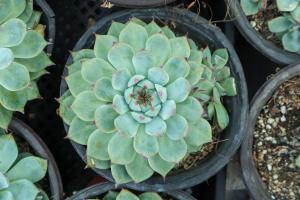Introduction
Trees and plants play a significant role in our planet's well-being. They provide us with oxygen, store carbon, and help combat climate change. However, despite their benefits, deforestation and environmental abuses have rapidly depleted the world's forests. This article will discuss why it is important to save trees and plants and the impact it has on our environment.
Trees and Plants are Essential to Our Environment
Forests and other plants ecosystems are vital to our planet's survival. For starters, they help regulate the earth's climate by absorbing carbon dioxide from the atmosphere and storing it in their trunks and leaves. They help purify the air by absorbing pollutants such as sulfur dioxide and nitrogen dioxide, and they produce oxygen, which is crucial for all living creatures.
Trees and plants are also crucial for maintaining the biodiversity of our planet. Each plant species provides a unique habitat and food source for numerous animals, birds, and insects. Deforestation and other destructive practices wipe out these habitats and endanger species, leading to the extinction of several species around the world.
Trees and Plants Combat Climate Change
Climate change is one of the most significant environmental problems facing our planet. Trees and plants are powerful tools to minimize the impacts of climate change. They absorb carbon dioxide, water vapor, and other greenhouse gases that trap heat in the atmosphere and contribute to climate change.
Research shows that deforestation contributes to approximately 10% of global greenhouse gas emissions. It significantly increases the amount of carbon dioxide and other greenhouse gases in the atmosphere, contributing to global warming, rising sea levels, and other climate change impacts. Saving trees and plants is a cost-effective way to combat climate change and keep our planet healthy.
Trees and Plants Support Sustainable Agriculture
Trees and plants are critical components of our agricultural systems. They provide food, fiber, and medicine, as well as wildlife habitats, erosion control, and other ecological benefits. Deforestation and soil depletion can lead to decreased crop yields, increased soil erosion, and reduced water quality.
With increasing global food demands, it's important to ensure sustainable agricultural practices. Planting trees and other vegetation around crops can help regulate temperature, control water runoff, and reduce the need for chemical fertilizers and pesticides. This, in turn, reduces the carbon footprint of agriculture and ensures a more sustainable food supply for future generations.
Trees and Plants Provide Economic Benefits
Forests and trees provide economic benefits to local communities, including tourism revenue, non-timber forest products, and job opportunities. One study estimates that the global value of forests in providing benefits such as carbon sequestration, water conservation, and timber production is around $16-20 trillion annually.
Investments in reforestation and forest management can provide substantial economic returns. Moreover, the protection of trees and plants can help prevent natural disasters such as floods and landslides, reducing the costs of post-disaster recovery efforts.
Conclusion
Trees and plants play a vital role in maintaining our planet's health and well-being. They combat climate change, support sustainable agriculture, preserve biodiversity, and provide economic benefits to local communities. Saving trees and plants is not an option, but a necessity, and it's up to us to protect these valuable resources for future generations.

 how many times do yo...
how many times do yo... how many planted tre...
how many planted tre... how many pine trees ...
how many pine trees ... how many pecan trees...
how many pecan trees... how many plants comp...
how many plants comp... how many plants can ...
how many plants can ... how many plants and ...
how many plants and ... how many pepper plan...
how many pepper plan...





























